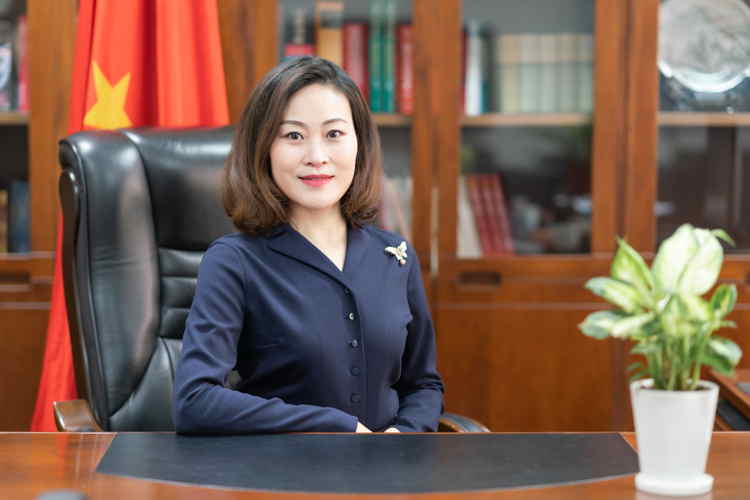China’s envoy to Nepal, Hou Yanqi, has gone into overdrive to prevent the ruling communist party from imploding, amid a spiraling rivalry with India for influence in the high Himalayas.
On Tuesday night Hou, who has already stirred controversy for brashly intruding into Nepal’s internal affairs, met Prime Minister K.P. Sharma Oli. Oli also doubles as the co-chair of the badly factionalized Nepal Communist Party (NCP), known for its pro-Beijing dalliance. But after tilting overtly in China’s direction, the Oli government is mounting a pronounced course correction. A string of high-profile meetings with India, starting with talks with spy chief Samant Kumar Goyal in late October, have continued to roll.
China is worried that the robust riposte mounted by India, a country with deeply shared historical and cultural bonds with Nepal, may chip away, if not undermine, the more recently acquired Chinese heft in the aspirational Himalayan nation. Hou’s anxieties have only mounted as India’s Foreign Secretary Harsh Vardhan Shringla is on his way to Kathmandu on November 26.
During his stay, the Indian envoy is expected to re-flag the stalled and politically sensitive boundary talks with Nepal—a prospect that is unlikely to align with China’s broader regional interests. Besides, Shringla hopes to reboot work on the Pancheshwar multipurpose dam. Following up on its focused soft-power push in Afghanistan—another theatre where Indian and Chinese interests are unlikely to align—New Delhi is expected to amplify its people-oriented pitch through high impact grassroots projects in Nepal.
“Hou wants to save the Oli government and the Tuesday meeting was mostly about finding a formula for truce with the Prime Minister’s main rival Pushpa Kamal Dahal,” says a Kathmandu based Nepal watcher, who did not wish to be named.
China has high stakes in Nepal—a country it wants to draw into its orbit of influence by undertaking major strategic projects in the infrastructure arena that help integrate the two economies.
Nearly three years ago, China became Nepal’s second internet service provider, breaking India’s monopoly in providing internet access to the Himalayan Kingdom. The Hong Kong- and Beijing-based China Telecom Global (CTG)—a company formed in 2012—had teamed up with Nepal Telecom to provide alternate cyber-connectivity to Nepal.
Prior to this move, Nepal had been linked to the global internet network through Indian telecom operators, using optical fibre connections in Biratnagar, Bhairahawa and Birgunj, among others. But CTG’s new terrestrial fibre cable launched in 2016 connects Nepal and China through the Rasuwagadhi border gateway. The new fibre link extends to a Hong Kong Data Centre—one of Asia’s largest global data centres. CTG had earlier paired with a couple of companies including Global Switch, a leading data centre in Europe, to launch a state-of-the-art data hub in Hong Kong.
Undercutting Kathmandu’s reliance on the Kolkata port, Nepal can now access four Chinese seaports—Tianjin, Lianyungang, Shenzhen, and Zhanjiang—for its overseas trade. It can also use Lhasa and Shigatse, two land ports in Tibet along with Lanzhou, on the doorstep of Xinjiang, as its commercial arteries.
“Our two countries have common views on the concept of Trans-Himalayan Multi-Dimensional Transport Network. Based on this broad framework, we want to seek cooperation with China on cross-border connectivity of railway, road, transmission lines and other related areas for mutual benefit,” Oli had earlier told Chinese state media.
Along with the Chinese ambassador’s fleet-footed exertions, Nepal President Bidya Devi Bhandari was also in the fray to defuse the NCP’s existential crisis. Nepal’s news website KathmanduPati is reporting that Bhandari had summoned Prachanda, Dahal’s nom de guerre, at Sheetal Niwas, the Presidential residence on Tuesday evening. President Bhandari apparently told Prachanda, NCP’s executive president, that he could become the Prime Minister next year, instead of Oli.
“You have to honor the previous agreements and protect the party from a split. After one year, you will be the Prime Minister. Let’s hold the general election from the government that you lead. I would guarantee that arrangement. This will resolve the intraparty disputes,” a high-level source quoted President Bhandari as telling Prachanda.
Meanwhile Hou’s excessively intrusive diplomatic style is breeding rumbling protests inside Nepal’s political establishment, though it may still not have achieved critical mass “An ambassador can meet the prime minister, but it’s not good to discuss the party’s internal matters with an envoy,” said Leelamani Pokhrel, a standing committee member of the NCP, as quoted by The Kathmandu Post.
Former foreign minster from the opposition Nepali Congress pointed out that “major powers are competing with each other [in Nepal]… such activities also show that our foreign policy is not balanced, not consistent and not nuanced”.
Amid China’s desperate moves to bind the fractious NCP-led government, and hold on to its geopolitical gains, Shringla will have to make deft and decisive moves on the Himalayan chess board, as another chapter of the Great Game pitting India and China unfolds in Nepal.




















